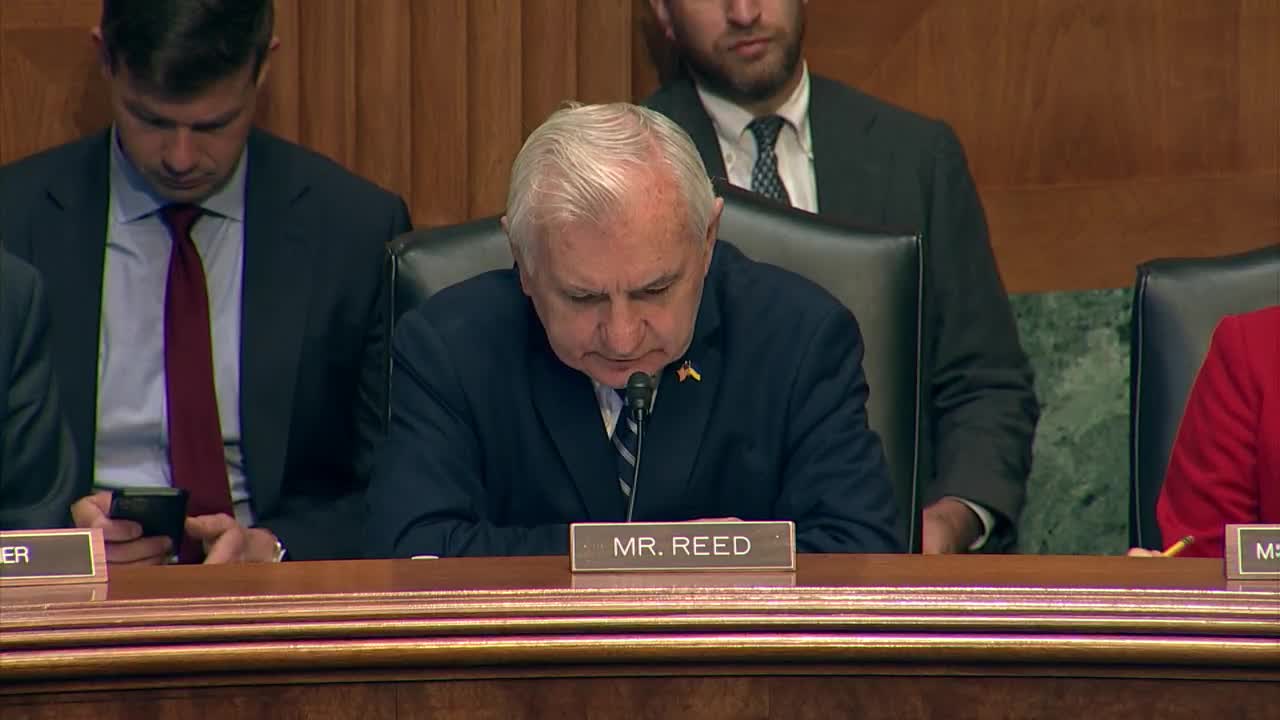Experts Discuss AI Impact on Job Market and Need for State Regulation
July 30, 2025 | Banking, Housing, and Urban Affairs: Senate Committee, Standing Committees - House & Senate, Congressional Hearings Compilation
This article was created by AI summarizing key points discussed. AI makes mistakes, so for full details and context, please refer to the video of the full meeting. Please report any errors so we can fix them. Report an error »

In a recent subcommittee hearing held by the U.S. Senate Committee on Banking, Housing, and Urban Affairs, discussions centered on the intersection of artificial intelligence (AI) and its implications for capital and insurance markets. The meeting highlighted critical concerns regarding the role of climate change in insurance underwriting and the evolving job landscape for recent college graduates in the age of AI.
One of the primary topics addressed was the necessity for insurance companies to incorporate climate change data into their underwriting processes. Experts emphasized that without considering climate risks, insurance providers cannot effectively assess the viability of insuring properties or liabilities. This reliance on comprehensive data sources, including federal research, underscores the importance of acknowledging climate factors in financial decision-making.
The hearing also touched on the challenges faced by recent college graduates, particularly in light of AI's increasing capabilities. With an unemployment rate of 5.8% for recent graduates compared to 4.2% for the overall population, concerns were raised about the potential for AI to automate entry-level jobs traditionally held by young professionals. Experts noted that while AI may change the nature of work, it does not necessarily eliminate jobs. Instead, it can enhance productivity and create new opportunities for lower-skilled workers.
A significant point of discussion was the need for educational reforms to prepare future generations for a workforce increasingly influenced by AI. As certain roles become automated, there is a pressing need to equip students with the skills necessary to thrive in this evolving landscape.
The hearing also addressed the regulatory environment surrounding AI. While states currently have the authority to create their own AI regulations, experts cautioned against a fragmented approach that could hinder innovation. A unified regulatory framework is seen as essential for balancing safety and innovation, ensuring that the market remains accessible and competitive.
In conclusion, the subcommittee hearing underscored the critical need for integrating climate considerations into insurance practices and preparing the workforce for an AI-driven future. As discussions continue, the focus will likely remain on establishing coherent regulations that foster innovation while safeguarding public interests.
One of the primary topics addressed was the necessity for insurance companies to incorporate climate change data into their underwriting processes. Experts emphasized that without considering climate risks, insurance providers cannot effectively assess the viability of insuring properties or liabilities. This reliance on comprehensive data sources, including federal research, underscores the importance of acknowledging climate factors in financial decision-making.
The hearing also touched on the challenges faced by recent college graduates, particularly in light of AI's increasing capabilities. With an unemployment rate of 5.8% for recent graduates compared to 4.2% for the overall population, concerns were raised about the potential for AI to automate entry-level jobs traditionally held by young professionals. Experts noted that while AI may change the nature of work, it does not necessarily eliminate jobs. Instead, it can enhance productivity and create new opportunities for lower-skilled workers.
A significant point of discussion was the need for educational reforms to prepare future generations for a workforce increasingly influenced by AI. As certain roles become automated, there is a pressing need to equip students with the skills necessary to thrive in this evolving landscape.
The hearing also addressed the regulatory environment surrounding AI. While states currently have the authority to create their own AI regulations, experts cautioned against a fragmented approach that could hinder innovation. A unified regulatory framework is seen as essential for balancing safety and innovation, ensuring that the market remains accessible and competitive.
In conclusion, the subcommittee hearing underscored the critical need for integrating climate considerations into insurance practices and preparing the workforce for an AI-driven future. As discussions continue, the focus will likely remain on establishing coherent regulations that foster innovation while safeguarding public interests.
View full meeting
This article is based on a recent meeting—watch the full video and explore the complete transcript for deeper insights into the discussion.
View full meeting